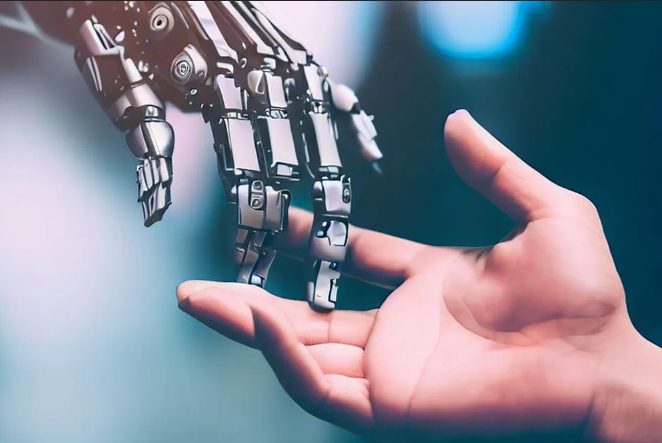Dear Clients and Friends,
Humans are not unique in being social mammals. What makes humans very unique is their ability to communicate complex ideas. Psychologists in the 1960s stumbled upon a unique feature of human interaction and they coined it “Truth-Default Theory”. They postulated that people are trustful because they assume most people are honest, and numerous studies bore out results that confirmed this hypothesis – on average we ‘default to truth’. Our ability to build, create, and execute complex and large-scale projects owes much to our ability to cooperate in a trusting manner. This has some downside (see Bernie Madoff), but human civilization is likely better off given the alternatives. Over the past year I have written a few missives that describe automation and Artificial Intelligence (AI), but today I plan to give the reader a slightly different take on the current narrative surrounding AI.
But first, going back to the 1960s, elevators became automated and no longer needed an attendant to operate the levers or reassure passengers. Yet, elevator attendants were still in high demand through the end of the 20th century. When cities tried to get rid of the elevator “liftman”, as they were called, they quickly noticed that passengers would wait for an elevator with an attendant before entering into an elevator. Most passengers felt uncomfortable entering a large coffin-like box that had the potential to drop the occupant hundreds of feet. It took almost 40 years for this to fade and elevator attendant to disappear, and during that 40-year period a new generation of elevator patrons became more trustful of automated elevators. History is full of examples where humans place their lives in the hands of other humans in an irrational fashion, and consistently choose to trust humans over machines. The human-to-human interaction is so powerful that it can overcome the rationality of an individual and create a comfort level that trumps any interaction with our artificial creations. This is the essence of defaulting to truth, and it will create the most stubborn obstacle for the implementation of full-scale AI.
Over the last few months, the media has created a lot of noise surrounding the AI system known as “ChatGpt”. Some have suggested that it will replace or automate half of all jobs, others have cautioned that when fully integrated into our lives it will be the end of civilization, while select few have yawned and said, “nothing to see here”. The suggestion has been made that we should put all AI research on hold for 6 months, and while that is not likely to happen it may also be unnecessary. You see, those researching and implementing AI have stumbled onto something that is truly amazing; much like the Prometheus and fire, those in the AI space want to share this technology with the world because they see all of the upside and little of the downside. But these AI pioneers may need to take a moment to review the history of human interaction and wonder, “who will trust our creation?”.
Just like elevators allowed us to build taller and taller buildings thereby increasing the productivity of a small space of land, AI will allow us to work faster with fewer people, thereby increasing our collective productive capacity. Those people who are displaced by AI, will migrate into other parts of the economy that have been created through advancements unleashed by innovation in AI. However, this will not happen quickly, and it will likely not happen without a fight. Just as the Luddites in early 19th century England opposed the automation of the textile industry, so too will both the consumer and worker push-back against the changes that AI generates. The consumer will ultimately be the arbiter of how quickly the adoption of AI actually persists, but I wouldn’t be surprised if it takes decades. And just like the elevator, a new generation will grow up with a level of comfort with the changes brought on by wide-scale usage of AI.
The opinions voiced in this material are for general information only and are not intended to provide specific advice or recommendations for any individual. All performance referenced is historical and is no guarantee of future results. All investing involves risks including loss of principal. No strategy assures success or protects against losses.
The economic forecasts set forth in this material may not develop as predicted and there can be no guarantee that strategies promoted will be successful.

